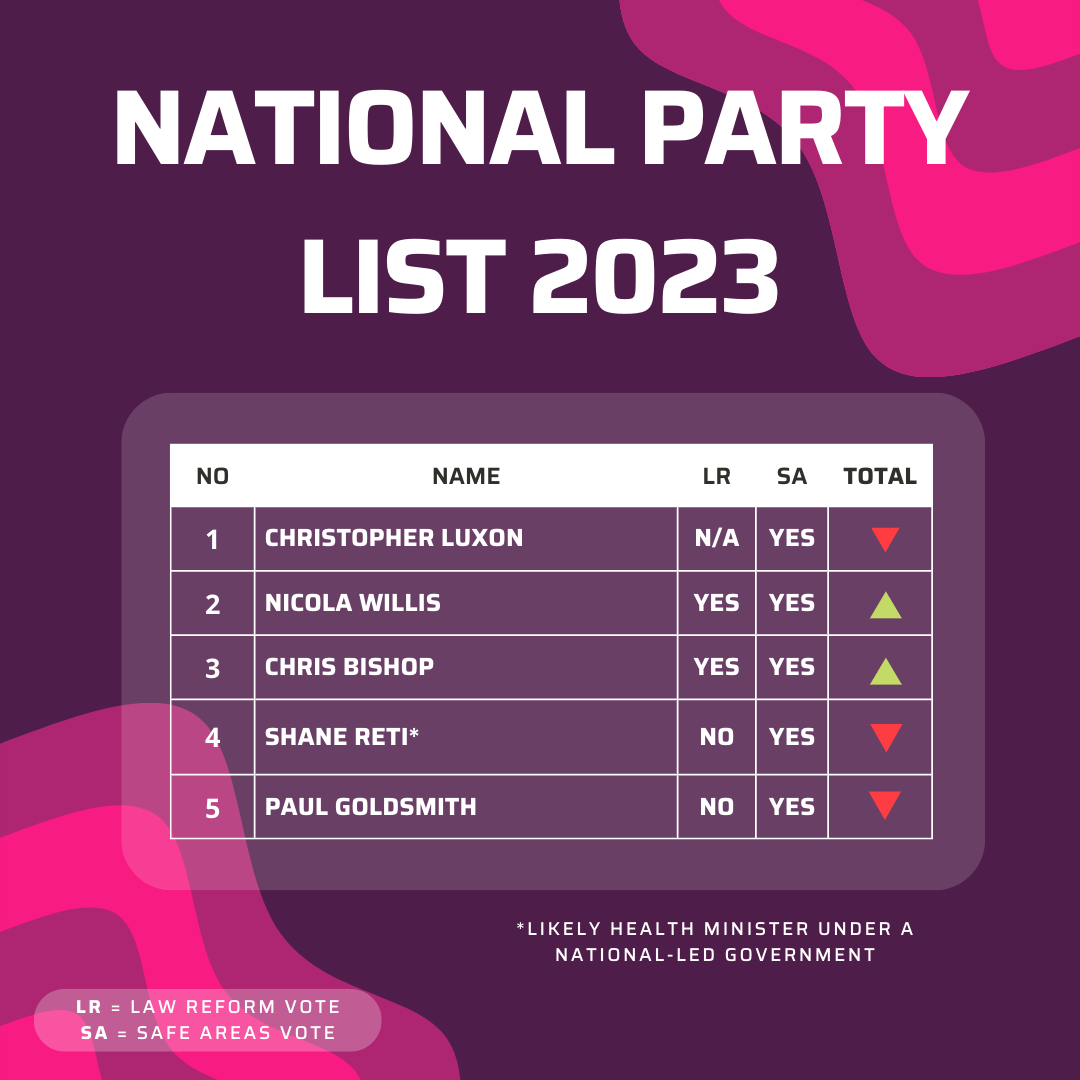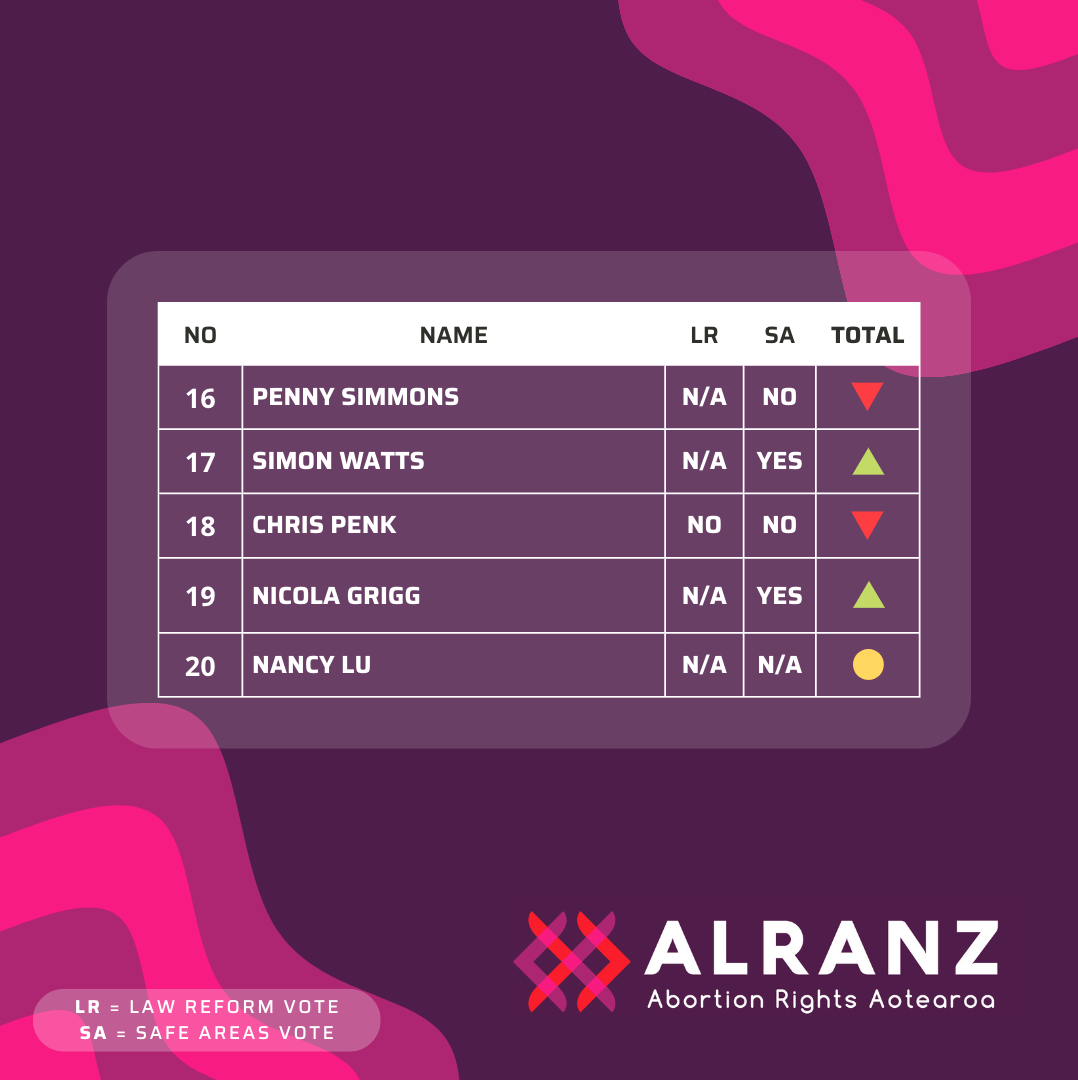by Terry Bellamak
Last week Newshub asked Christopher Luxon whether contraception would be fully funded if National gets elected and rolls back Labour’s elimination of the $5 fee for prescriptions. Caught off guard, his answer revealed just how little thought or planning went into this policy. He said he did not consider those needing contraception to have “high medical needs.”
Luxon had once again stumbled into telling on himself. You would think a former CEO would be well across the business case for contraception – it prevents more costly health service events, like abortions, pregnancies, and childbirths. Instead Luxon seemed to answer not from his business superego, but from his evangelical id. Fundamentalists oppose both abortion and contraception, as we see in the USA.
The electorate, ever watchful for signs of plans to roll back reproductive rights, reacted with outrage. They remembered certain salient facts the National party would rather they forget:
- Luxon is on record agreeing that abortion is ‘tantamount to murder’
- Luxon has promised not to repeal the Abortion Legislation Act 2020, nor reduce funding for abortions BUT
- The religious right has strong form for lying about reproductive rights when it suits their agenda.
- Supreme court justices in the US lied about abortion in their Senate confirmation hearings, leading to the overturning of Roe v Wade.
- Anti-abortion extremists in the USA and New Zealand still tell lies about abortion negatively affecting patients’ mental health, years after the Turnaway study proved otherwise.
- National MP Simon O’Connor, who ended his speech at the Abortion Legislation Act’s third reading with the ominous ‘Vengeance is mine, saith the Lord’ in Latin, posted ‘Today is a good day’ when Roe was overturned. It took Luxon three tries to distance himself from O’Connor’s remarks and calm the waters.
- In the past week National’s fundie caucus has been throwing its weight around, with Simeon Brown complaining about bilingual road signage, and O’Connor dog-whistling his opposition to same-sex marriage. Luxon is unable, or chooses not, to control them.
- Also this week the National party showed form for reneging on good faith agreements, as shown by their surprise repudiation of the Medium Density Residential Standards agreement with the government.
And now here we have Luxon stating his belief that contraception is not important enough for National to cover people who need it. Bad look. No wonder people find it hard to credit his promises around protecting abortion rights.
Labour uncharacteristically took advantage of Luxon’s mistake. Prime Minister Chris Hipkins referred to the National party taking New Zealand back to the 1950s. Megan Woods tweeted a meme from the Handmaid’s Tale.
You can tell how much Woods’s jibe hit home by the pearl-clutching that ensued. The mildest hyperbole was condemned as dirty politics.
Newshub seemed a bit shocked and dismayed that their gotcha question had landed so hard. The walkback started immediately as political journalists echoed the National party’s outrage, grabbing for their own pearls.
Some have criticised Labour for not eliminating the prescription fee six years ago. Why is this silly time-travel argument used so much? Making the announcement about free prescriptions changed the conversation. From that moment ‘everybody pays’ was off the table. In its place was ‘nobody pays’ and ‘some must pay.’
Who must pay for what involves a values-based discussion about what care the health service should fully fund. National should have known better than to turn the discussion to values when its loud and proud fundie caucus is so out of step with the New Zealand public. Aotearoa has a resolutely secular society that does not trust extreme religious politicians.
That’s why Woods’s meme hit home.
Given the importance of the rights at stake, i.e. bodily autonomy and reproductive freedom, who could blame New Zealanders for being super cautious about a party chock full of people who oppose their fundamental rights, including the leader? This is not the National party of Hon Amy Adams and Hon Nikki Kaye.
We have seen the speed with which the health care system in conservative US states has deteriorated into a shit show. People are being criminalised for making decisions about their own bodies in the privacy of their own homes. People with failing pregnancies are being forced to wait until they are at death’s door before doctors will treat them. The USA’s Savita Halappanavar may be only weeks away.
If we elect a National government that breaks its promises and curtails reproductive rights, it will be too late for us. Given the grave nature of the risk, we have every right to be worried about National and their real intentions.




